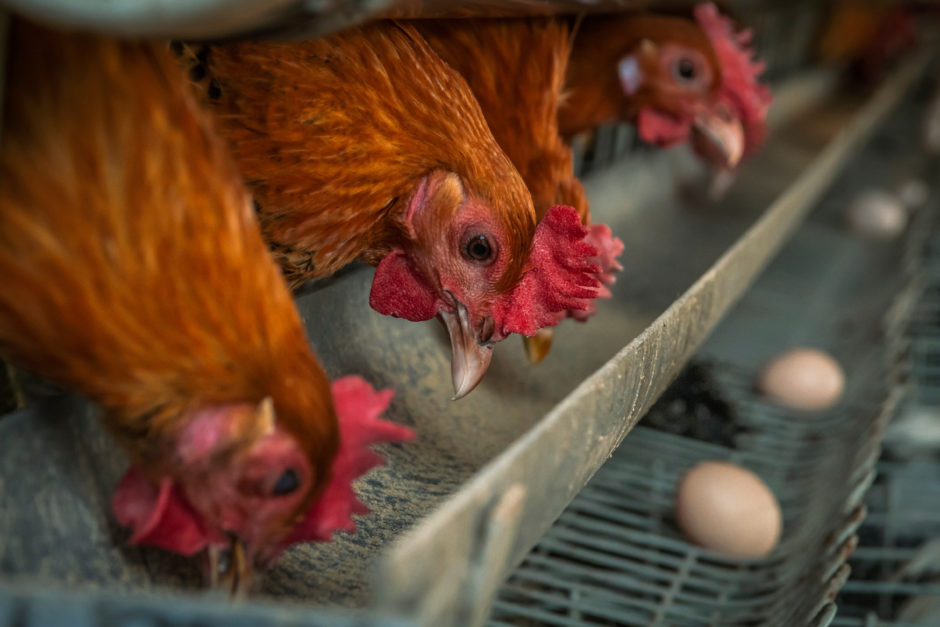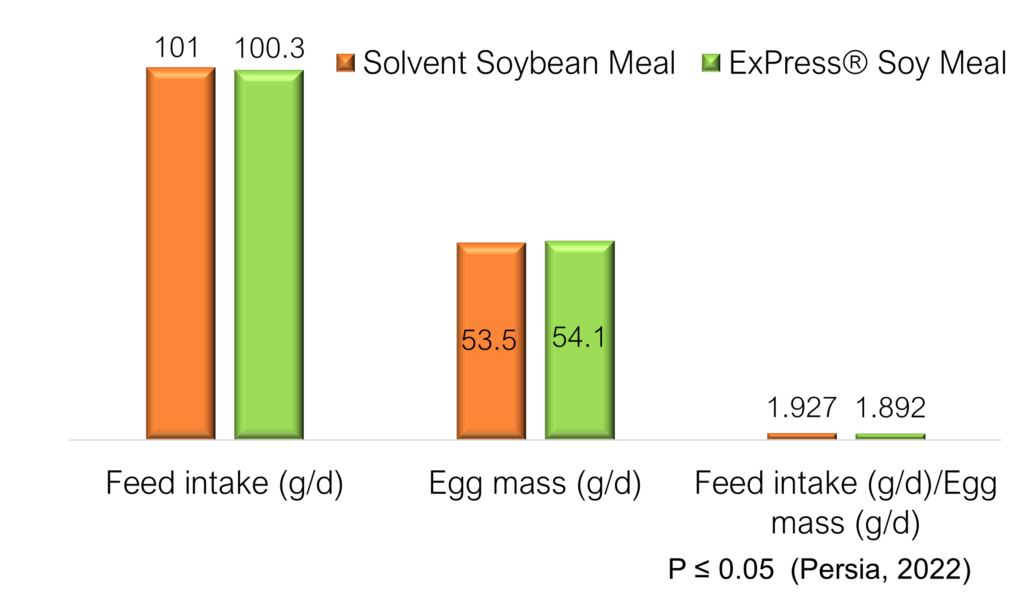Better Soy Meal for Layers – Same Egg Production, More Feed Efficiency, Lower Diet Costs

As part of our continued efforts to fully understand and optimize processing with our equipment, often used to make better versions (like ExPress® soy meal) of commodity ingredients, we completed a feeding study with layers at Virginia Tech. Feeding studies with layers are challenging because of the extended length of observation. Indeed, a typical flock of laying hens matures from the pullet stage to beginning to lay eggs at about 16-20 weeks of age, then go on to lay about one egg per day for 95-100 weeks. That’s almost 2 years!
That’s a lot of feed for the same one egg per day. Therefore, measurements of feed efficiency or daily consumption in relation to productive output, egg production in this case, based on particular diet formulations are so important for this and all types of animal production.
The data from Virginia Tech tells a nice story. When ExPress® soy meal is used in a layer diet, feed intake declined slightly, while egg mass was slightly increased. The resulting feed efficiency calculation indicated that feed conversion ratio for layers was significantly improved:

This means that each bird would consume about 80 fewer grams of feed during the laying period of 22-37 weeks, the time frame used in this study. Combine this with the fact that the ExPress® soy meal-based diets were much less expensive. With ExPress® soy meal (and dry extruded full-fat soy meal), much less, or no, external fats and oils need to be added to the diet formulation because these meals contain residual oil within the meal. Often, these better soy meals fetch a premium in the marketplace because of this extra energy, as well as better digestibility of amino acids.
Lastly, it must be stated that layers fed ExPress® soy meal exhibited the same egg performance and egg quality measurements as those fed commodity, solvent soybean meal.
Speak with us about how you can reduce your inputs, total feed consumption and diet costs, while maintaining the same level of egg production and quality, with one simple ingredient change.



